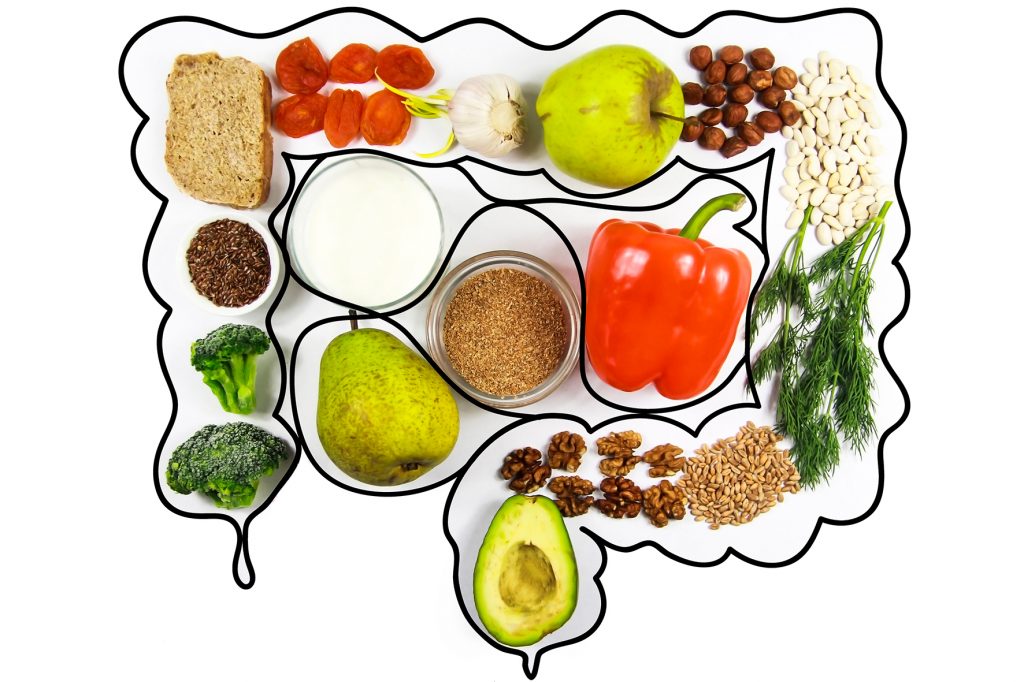We all know that feeling when we “gut” something out. Whether on the verge of making a difficult decision or undertaking a challenging physical feat, our guts can often be our most reliable allies in getting us through tough times. But what exactly is this “gut feeling” we experience?
The “gut feeling” is genuine and based on the connection between our brain and gut. This connection is known as the “gut-brain axis” and is responsible for sending signals between our heart and brain, influencing our mood, appetite, immunity, and ability to think clearly.
So how can we ensure our guts are always healthy and send signals to our brains efficiently?
Experts from Westfield Health – a leading British health and wellbeing company; have looked at the criticality of good gut health while highlighting the possible signs of ailing intestines and what foods could help boost their well-being.
Why is good gut health important?
By ‘gut health’, we refer to the overall well-being of our gut and digestive system. This may sometimes be easy to forget, but the digestive system is arguably the most crucial system within the body.
Our guts are home to billions of fungi and bacteria – a thought not so pleasant and poetic but one that comprises the reality of us humans. Microorganisms play a fundamental role in preserving the well-being of our gut and entire body. Therefore, a healthy gut can have an array of benefits for both our mental and physical states.
Research exhibits a strong connection between bacteria in our guts (in the colon) and our immune system. Gut bacteria can teach the immune system to spot and recognise benign and harmful microorganisms. This is particularly useful as it means that our immune system will not end up flaring up if it comes across innocuous microbes. Instead, it will identify actual ‘threats’ and intervene accordingly.
Moreover, a healthy gut can positively affect our mood and mental well-being. The stomach produces around 90% of our body’s serotonin, a neurotransmitter that impacts our social behaviour, mood, appetite, and sleep.
Therefore, it is fair to say that a well-nourished gut can work wonders for our general well-being.
Signs of an unhealthy gut
A healthy gut and its microorganisms efficiently carry out many positive functions. Hence, it is no surprise that if – for instance – there is an imbalance in gut bacteria, your overall health gets heavily impacted.
But how do you recognise the signs of an unhealthy gut?
Here are a few symptoms to look out for:
- Upset stomach
- Digestion issues
- Sleep loss
- Migraines
- Skin irritation
How to feed your gut

There is no denying that the symptoms of an unbalanced gut can be rather unpleasant. If you’re experiencing severe gut problems, such as abdominal pain, diarrhoea, or constipation, you must visit your GP. These could be signs of a more severe problem, such as irritable bowel syndrome or celiac disease.
You may consider investing in a private health care plan to avoid lengthy NHS waiting times but be aware that most policies won’t cover pre-existing conditions.
But prevention is better than cure, which in this case is eating the right food.
So, what should you add to the menu?
- Fibre – Plant-based foods and fibre –fruits, vegetables, nuts, and whole grains work wonders for gut bacteria and keep them healthy. A diet that is low in fibre can increase bloating, in contrast.
- Probiotic food – Probiotics are naturally found inside the gut and have a range of digestive benefits, such as helping irritable bowel syndrome. Live yoghurts are a great source of probiotics and can actively encourage more good gut bacteria to develop.
- Antioxidant-rich foods – Antioxidants are compounds that help to protect cells from damage. Foods rich in antioxidants include berries, dark chocolate, and green tea.
- Healthy fats: Healthy fats, such as those found in olive oil, avocados, and nuts, are essential for gut health. They help to keep the gut lining strong and prevent inflammation.
The human gut is home to trillions of microbes. This community of microbes, known as the gut microbiota, plays a crucial role in human health, influencing everything from digestion and nutrient absorption to the immune system and mood. While the gut microbiota is complex and unique to everyone, certain foods can promote gut health and encourage the growth of beneficial microbes. Here are ten gut-friendly foods to add to your diet.
From keeping the body energised to uplifting our mood, a healthy gut can have a significant number of benefits on our well-being. After all, a healthy gut is a happy gut.
Reasons To Stop Using Shaving Foam
Christmas at The Little Scarlett Door





